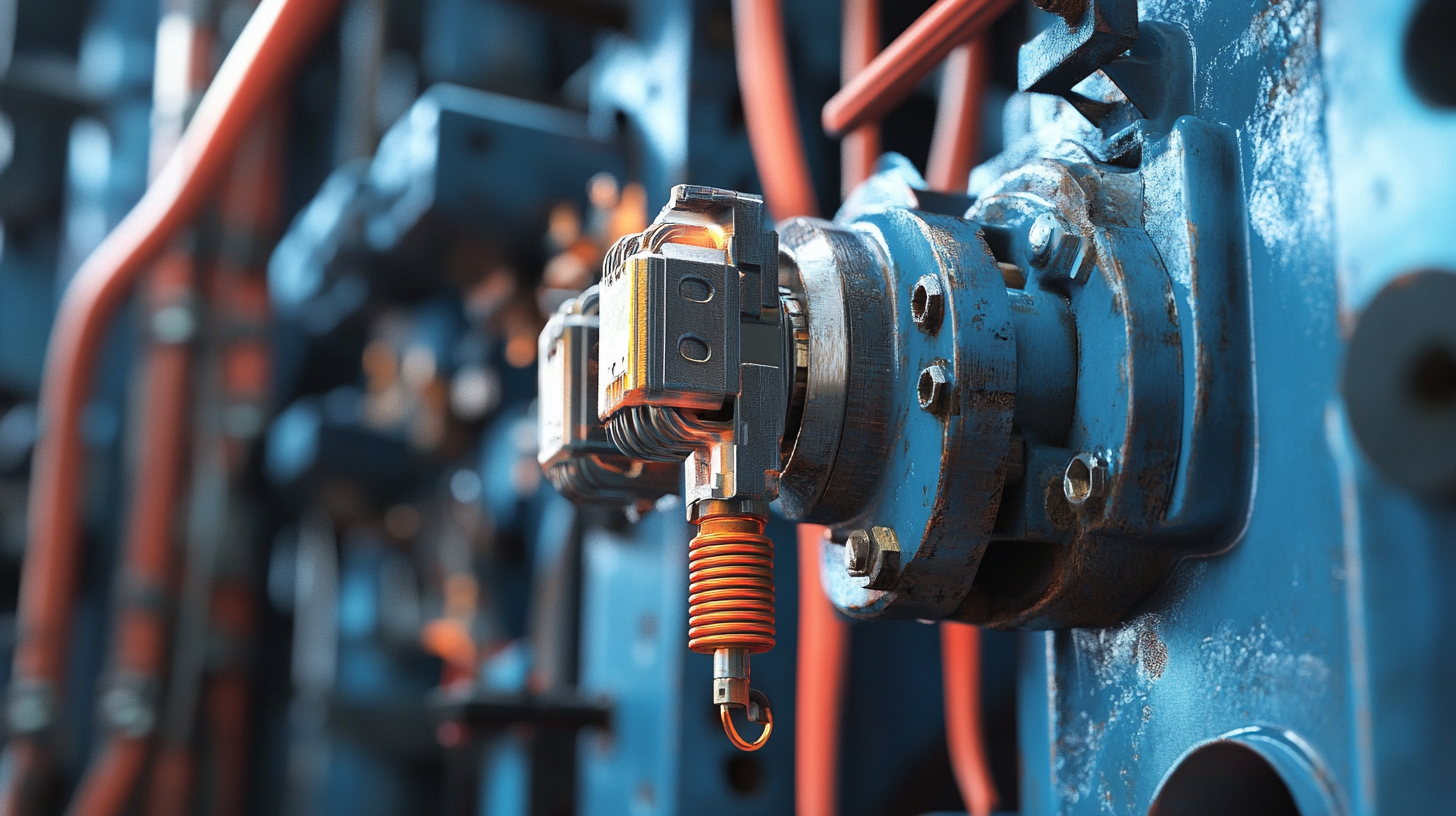
As the global demand for reliable electrical components continues to rise, Heavy Duty Industrial Plugs have emerged as essential elements in various industrial applications. According to a recent market research report by Technavio, the global industrial plugs and sockets market is projected to grow by USD 1.37 billion from 2021 to 2025, driven largely by the increasing need for energy-efficient solutions and robust electrical systems. In China, which stands as one of the leading exporters in this sector, the emphasis on high-quality manufacturing processes and compliance with international standards is paramount. However, finding a reliable supplier can be a daunting task, given the vast number of manufacturers available. This blog will provide a comprehensive checklist to guide you in identifying top-quality suppliers for Heavy Duty Industrial Plugs, ensuring you make informed decisions that cater to the unique demands of your operations.

The evolution of heavy duty industrial plugs in China has been a remarkable journey, driven by advancements in technology and increasing global demand. In recent years, the market for heavy duty industrial plugs has seen substantial growth, with projections estimating a compound annual growth rate (CAGR) of around 6% through 2025, according to a report by Research and Markets. This growth is largely attributed to rapid industrialization and the rise of manufacturing sectors in China, which have necessitated more robust and reliable power solutions.
One notable trend in this evolution is the shift towards environmentally friendly materials and designs, as manufacturers strive to meet international standards while reducing their carbon footprint. Many companies are now adopting materials that not only enhance durability but also contribute to sustainability. Data from the Chinese Electrical Equipment Industry Association reveals that the demand for eco-friendly plugs has risen by 30% in the last two years, highlighting a significant pivot in consumer preference.
**Tip:** When selecting heavy duty industrial plugs, ensure they comply with international safety standards such as IEC, UL, or CSA to guarantee their reliability in demanding environments.
**Tip:** Always consider the specific application environment—factors like temperature, humidity, and exposure to chemicals can significantly impact the performance and lifespan of industrial plugs.
In today’s industrial landscape, durability is paramount, especially when it comes to heavy-duty industrial plugs. As industries increasingly rely on robust and reliable components, the shift towards higher quality standards has never been more critical. According to industry research, equipment failures related to subpar components can lead to significant downtime, costing companies thousands of dollars per hour of lost production. Therefore, investing in quality heavy-duty industrial plugs is essential for maintaining operational efficiency and reducing long-term costs.
Recent advancements, such as innovative materials developed for 3D printing, emphasize the importance of quality in industrial applications. For instance, the introduction of advanced silicone materials has demonstrated enhanced mechanical properties, providing greater resilience under demanding conditions. When integrated into industrial machinery, these high-quality components not only improve performance but also minimize maintenance requirements. The commitment to superior manufacturing processes and materials signifies a crucial trend where quality transcends mere compliance and becomes a primary driver of competitive advantage in the industrial sector.

In the realm of heavy-duty industrial plugs, quality and reliability are paramount. China's leading exporter has set the benchmark for premium heavy-duty plugs, infusing advanced technology and stringent manufacturing standards into every product. These plugs are crafted from high-grade materials, ensuring they can withstand the harshest environments and demanding applications. Their robust design not only enhances durability but also ensures safety, significantly reducing the risk of electrical failures and accidents in industrial settings.
Key features of these premium heavy-duty industrial plugs include:
Investing in high-quality industrial connectors, particularly heavy-duty plugs, proves to be a cost-effective strategy in the long run. According to a report by the Market Research Future, the global industrial connectors market is projected to expand at a CAGR of 5.8% from 2021 to 2028, highlighting the increasing demand for reliable and durable connections in various sectors, including manufacturing, energy, and automation. High-quality connectors not only enhance operational efficiency but also minimize the risk of downtime caused by equipment failure, which can save companies significant costs associated with repairs and lost production.
Additionally, a study published by Technavio indicates that while the initial investment in premium industrial connectors may be higher, the total cost of ownership decreases over time. Enhanced durability and performance lead to longer replacement cycles, reducing the frequency of maintenance expenses and the need for rapid replacements. This aspect is particularly crucial in industries where operational continuity is paramount, ensuring that businesses can maintain productivity with fewer disruptions. By prioritizing quality in their industrial connections, companies are not merely meeting the current demands but are also positioning themselves for sustainable growth and resilience in the face of future challenges.
As the demand for robust and reliable industrial solutions continues to grow, the design and technology of heavy-duty industrial plugs are evolving rapidly. Manufacturers are increasingly focused on integrating advanced materials and innovative engineering techniques to enhance durability and performance. This shift towards higher quality standards is primarily driven by the need for safety in high-demand environments such as manufacturing plants, construction sites, and energy production facilities. The use of materials that withstand extreme temperatures, moisture, and mechanical stress is becoming a norm, ensuring that these connectors can operate efficiently under the most challenging conditions.
Looking ahead, future trends in heavy-duty industrial plug design will likely include greater emphasis on smart technologies. With the rise of Industry 4.0, connectivity and automation are set to play a crucial role in the development of these electrical connectors. Plugs that feature integrated sensors to monitor usage and detect potential faults could enhance safety and operational efficiency. Furthermore, the move towards sustainability will lead manufacturers to explore eco-friendly materials and designs that minimize environmental impact.

As these trends shape the industry, China's leading exporters are poised to set new benchmarks in quality and innovation, reinforcing their position in the global market.
